An important piece of legislation is set to hit the U.S. House floor this week, and if passed, it could turn the world of freelancing upside down.
The PRO Act, or the Protecting the Right to Organize Act, is a bill that is largely focused on empowering workers to better organize and unionize. But while the aim of the act is to provide more protection for workers, it also poses some serious potential problems — most notably, potentially eliminating many forms of freelancing and independent contracting.
With as many as 59 million freelancer jobs at stake, we wanted to see how current freelance writers felt about this controversial bill. The results were quite clear — most freelancers are quite concerned and fearful that their livelihoods are at risk.
The PRO Act & Freelancing Explained
How does the PRO Act threaten freelance writers and other independent contractors?
It’s all about redefining who is classified as an employee and who isn’t.
Using the “ABC Test,” the legislation would reclassify many current freelancers as employees, which would make it impossible for most freelance writers to continue to work in their current manner. Companies would be forced to hire writers as employees, providing all the benefits like insurance and vacation time that comes with doing so, which undoubtedly they would just choose not to do (and likely couldn’t afford to do either). Not to mention, freelancers don’t want to be their clients’ employees for the most part (more on that in the survey results section later on).
According to the guidelines set forth in the “ABC Test,” a worker must be classified as an employee unless he or she meets all three of the following requirements:
“(A) the individual is free from control and direction in connection with the performance of the service, both under the contract for the performance of service and in fact; (B) the service is performed outside the usual course of the business of the employer; and (C) the individual is customarily engaged in an independently established trade, occupation, profession, or business of the same nature as that involved in the service performed.”
As we explained in a recent article (check it out for a lot more info about this bill), the “B” part of the test is the key issue for many writers.
“Point ‘B’ of the ABC Test poses a barrier to any freelancer writing for a publication. Articles are the core, ‘usual’ business of that employer. If you’re writing articles for them as a freelancer, you flunk the ABC Test,” our founder Carol Tice explained.
And no, incorporating your freelance business as an LLC or corporation won’t get you around these restrictions, says Kim Kavin, a longtime freelance journalist and a co-founder of the activist group Fight For Freelancers USA.
A similar law, AB 5, went into effect in California in 2020. The law imposed the ABC Test in all areas, but it provided some minor exceptions for freelance writers, allowing them to submit up to 35 articles per client per year. But even those exceptions weren’t enough as freelance writers can hit those caps pretty quickly depending on the type of work they do.
As a result, some freelancers left the state after the law was passed and some major publications simply stopped using freelancers from California altogether. Eventually, the state’s lawmakers were forced to amend AB 5 to create more exceptions that would allow freelance writers to continue working.
Unfortunately, the national version of this bill currently doesn’t offer these exceptions for freelancers, and if the PRO Act is passed in its present form, there will be nowhere for freelancers to run.
The Survey
We partnered with the data analysis team at Mindnet Analytics to conduct an online survey of 690 current male and female US full-time freelance writers from the time period of March 4-7, 2021. Of those surveyed, about 32% have been freelancing for 3-5 years, 21% for 10+ years, 21% for 1-2 years, 13% for 6-9 years, and 13% for less than a year.
Our aim with the survey was to find out what freelancers knew about the PRO Act and their thoughts about the proposed legislation.
We asked a number of questions to determine how freelancers felt about the PRO Act, and the results are compiled below.
Notable Findings
4 out of 5 freelance writers expressed concern about the PRO Act potentially limiting their ability to continue freelancing.
40.3% of respondents said they were “very concerned” about the legislation while another 39.6% indicated they were at least “somewhat concerned”.
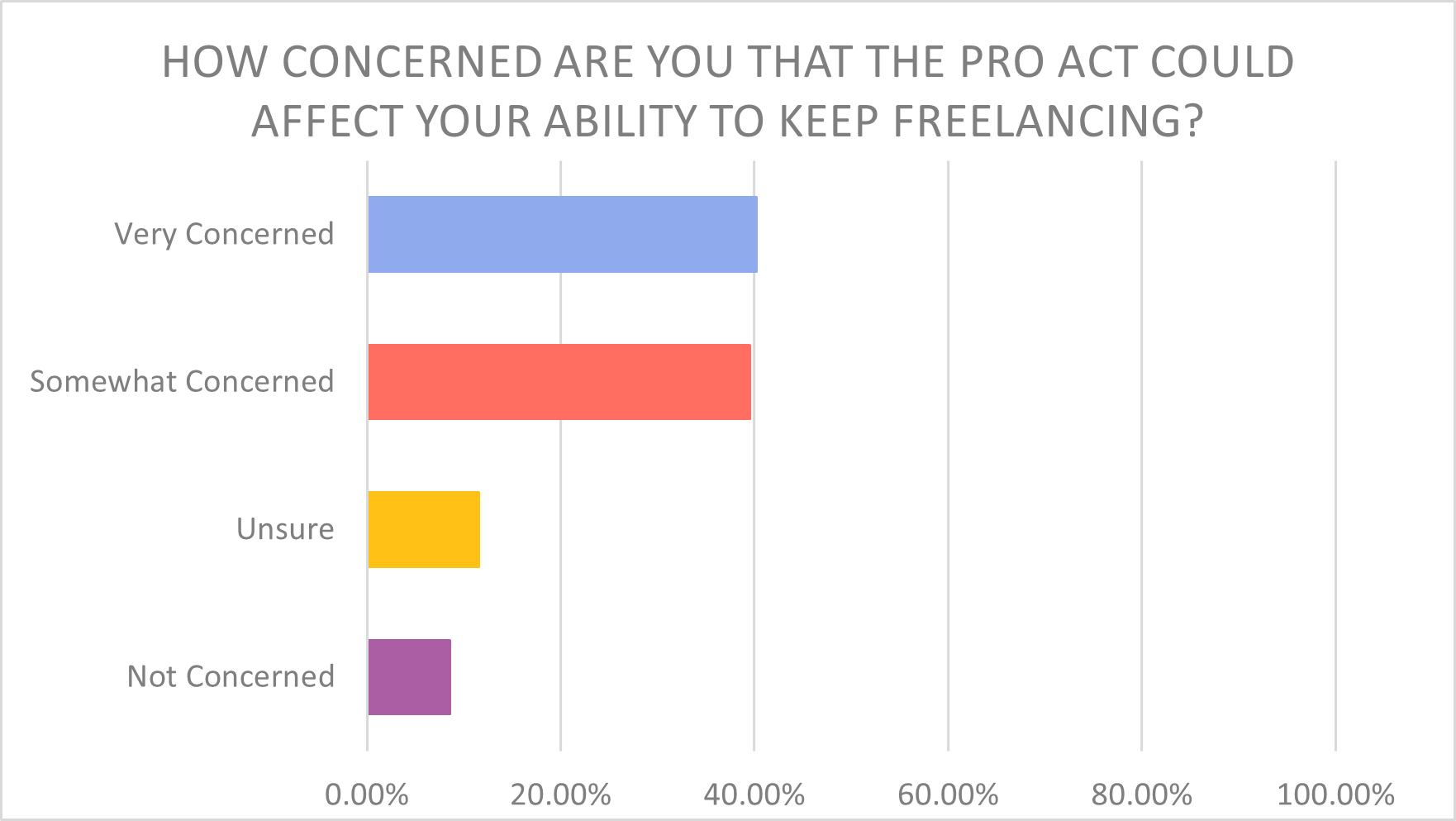
Understandably, many freelance writers are scared that they won’t be able to continue doing what they love to do…and what they do to make a living and put food on their tables. As Erica Jedynak, director of economic opportunity at Stand Together, said in a recent interview, this proposed legislation “threaten[s] to undermine this entrepreneurialism by imposing requirements that would severely limit peoples’ ability to work as independent contractors.”
58% of freelancers believe the PRO Act could negatively impact their livelihood.
The majority of freelance writers think the legislation could cause their business to suffer financially if it is passed in its current form.
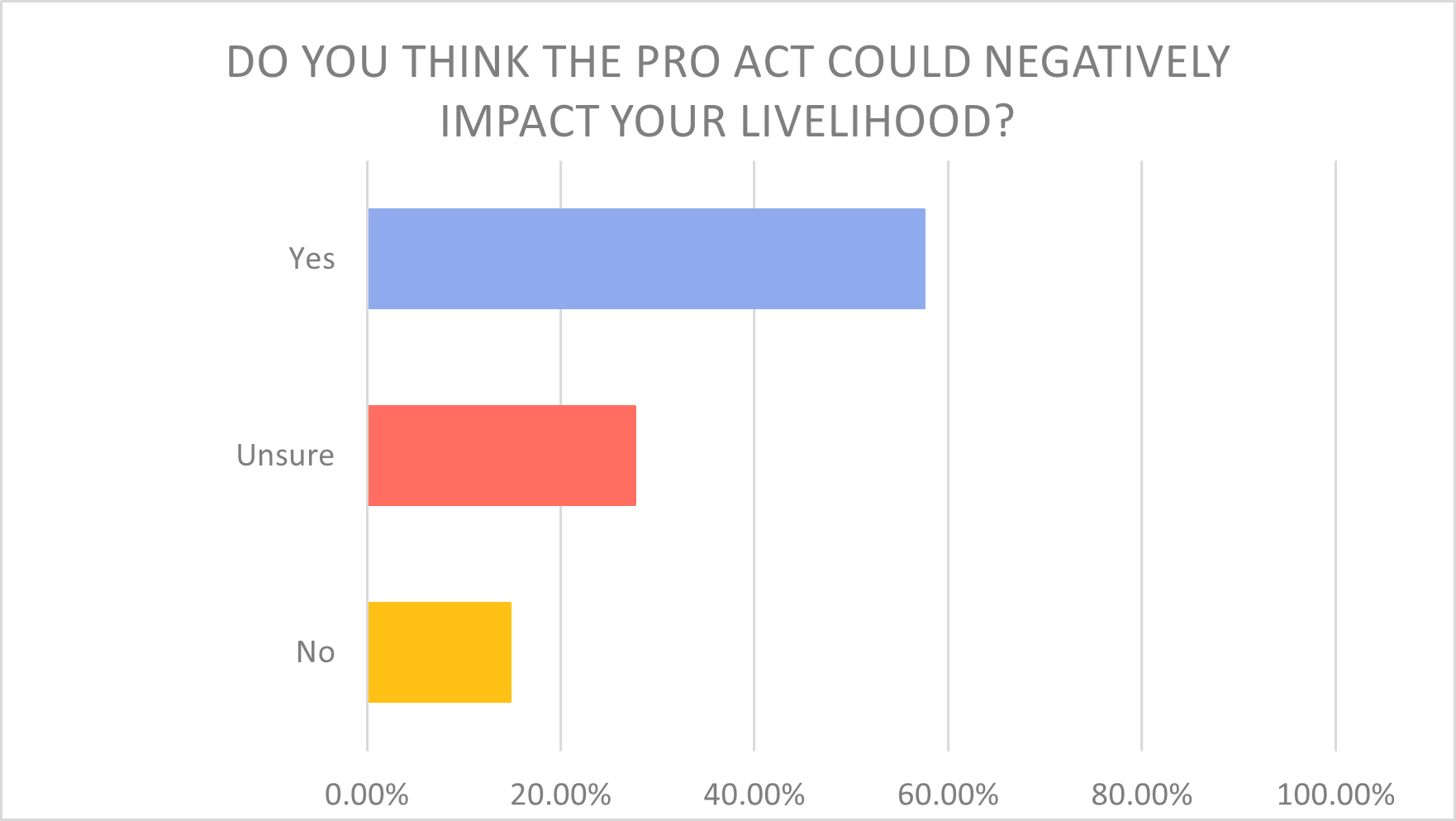
If the PRO Act passes in its current form, many freelance writers would be forced to reassess exactly what it is they do for a living and will no longer be able to make money writing as they do now. As Jedynak explained, the policy would likely “lead to fewer jobs and less income for struggling Americans.”
Most freelance writers believe lawmakers don’t know enough about freelancing to sensibly regulate it.
2/3 of respondents doubted that those in Congress truly understand the freelancing business.
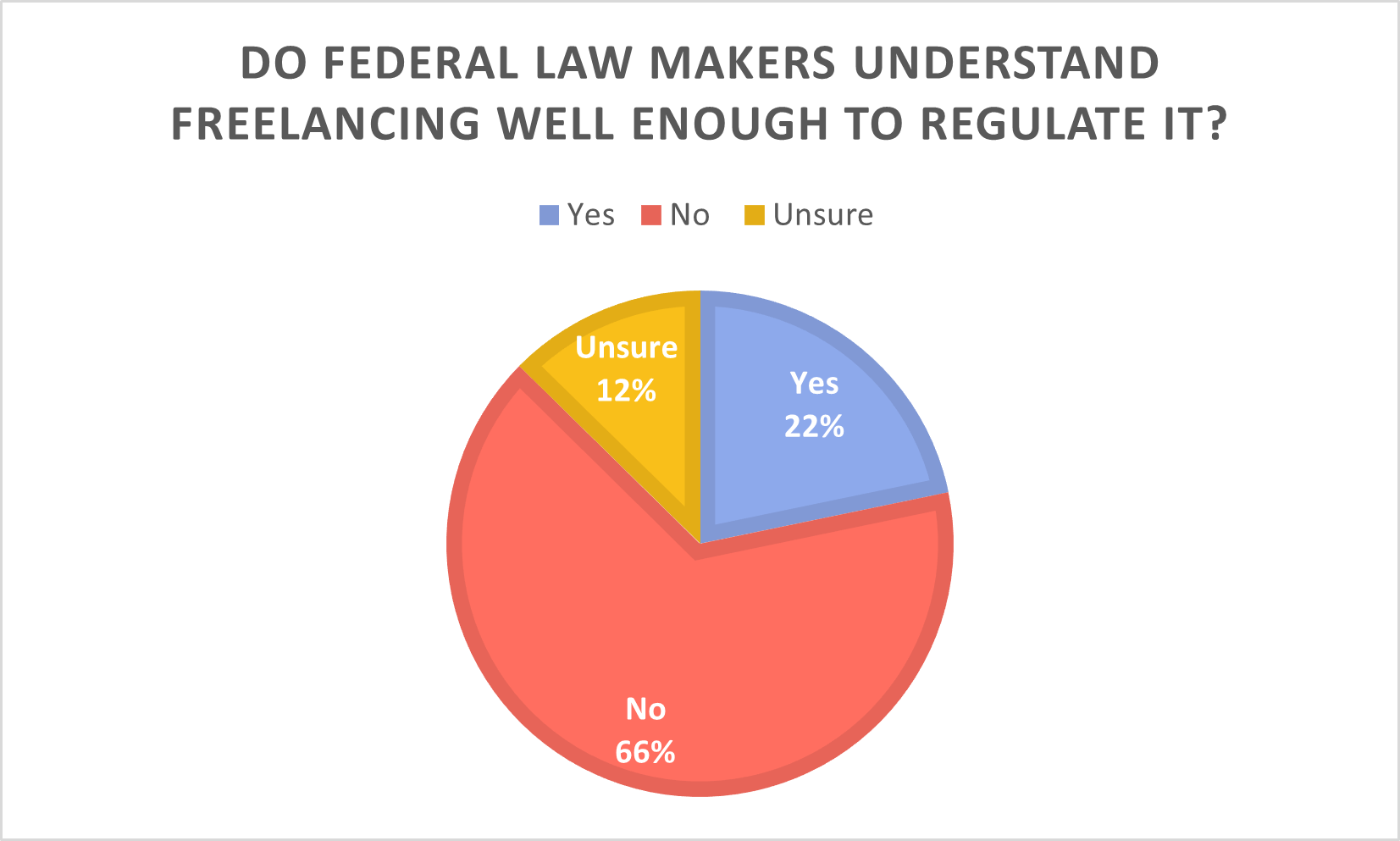
Freelancers believe federal lawmakers lack a fundamental understanding of how the industry works, and as a result, legislation that might have been created with good intentions could potentially do serious harm to tens of millions of professionals.
Over half of freelance writers currently do not support the PRO Act.
Only 22% of current freelancers support the PRO Act.
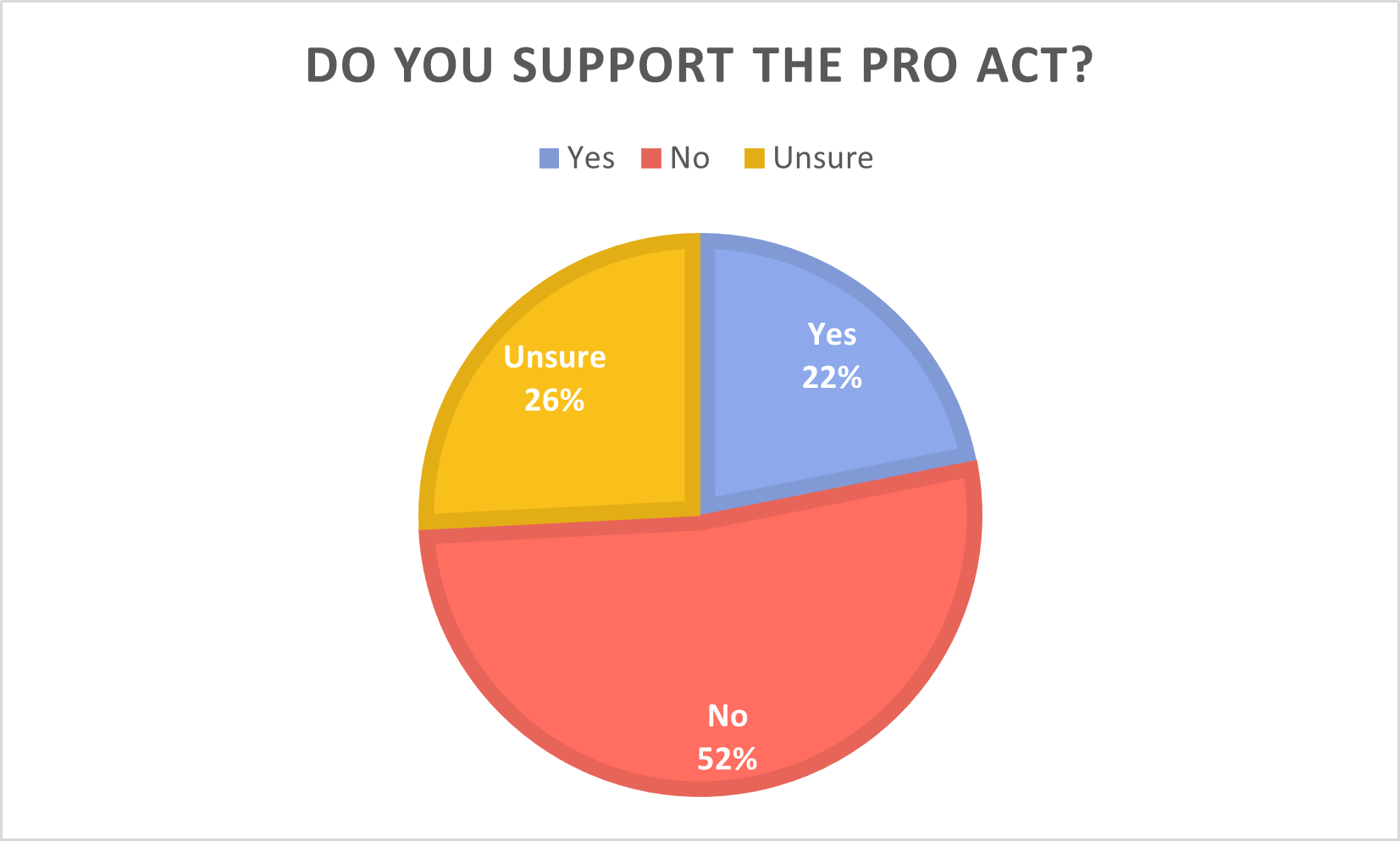
While many support the bill’s aims to provide more protection for workers, the severe collateral damage it may cause to freelancers makes it impossible for most independent contractors to support in its current form. Perhaps if some exceptions were added to protect freelance writers from this legislation, the bill would have more support from the industry.
The vast majority freelance writers value their ‘independent contractor’ status and don’t want to be someone’s employee.
75% of those surveyed said their status as a freelancer is “very important” to them, while 73% also commented they’d rather be a contractor than an employee.
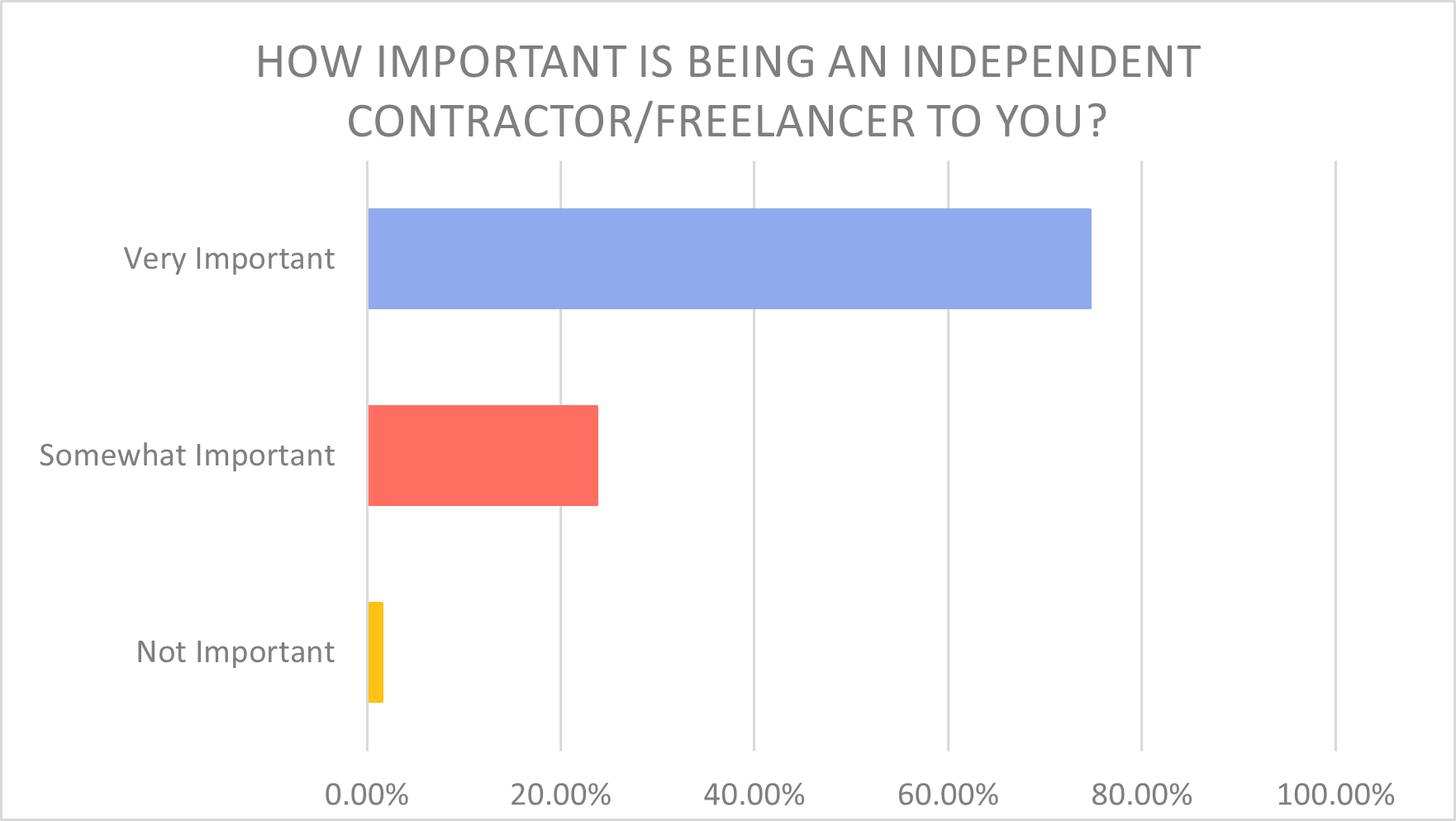
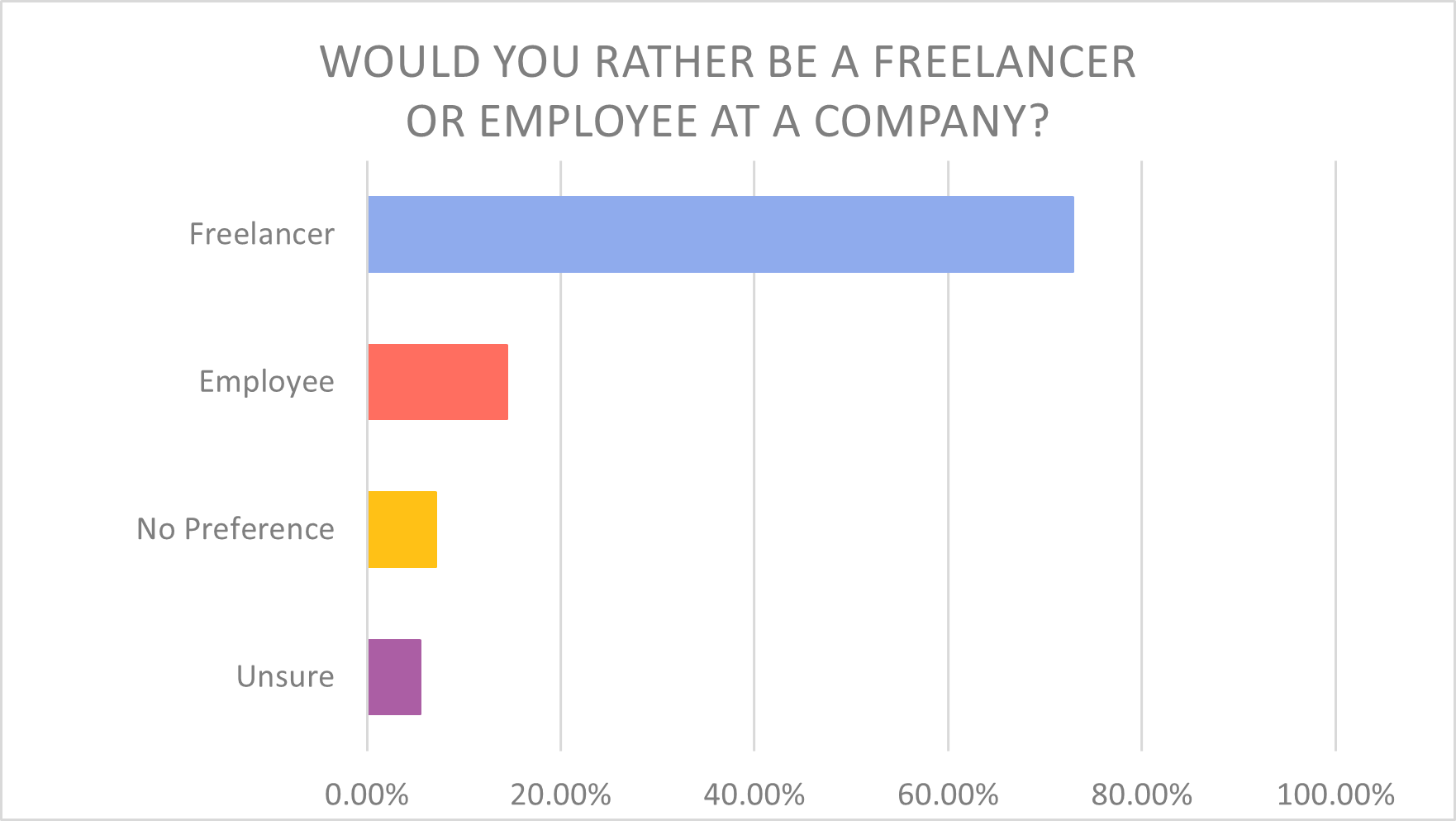
For many, the ‘free’ in ‘freelancing’ is short for ‘freedom’. By and large, freelancers have little interest in taking on a traditional full-time job. Instead, they prefer the entrepreneurial lifestyle of being their own boss and building up their business. The PRO Act threatens to eliminate this freedom by reclassifying independent contractors as employees of their clients.
Methodology & Other Details
The survey took place from March 4-7, 2021 and only US respondents were allowed to participate. Participant source was a mix of Amazon Mechanical Turk (freelance writers only with a 95% or higher approval rating) and freelance writer email lists. Participants that completed the survey in less than 30 seconds were removed prior to analysis to exclude anyone who did not read the questions carefully, leaving a final total sample size of 690 US freelance writers.
Confidence Level: 95%, 4% margin of error
How to Learn More & Take Action
Want to learn more about the PRO Act? Our guide here has a lot more info.
The Fight for Freelancers USA site also has good resources to get you started, as does their Facebook page. ASJA does as well, on both the AB5 lawsuit and lobbying for changes to The PRO Act.









